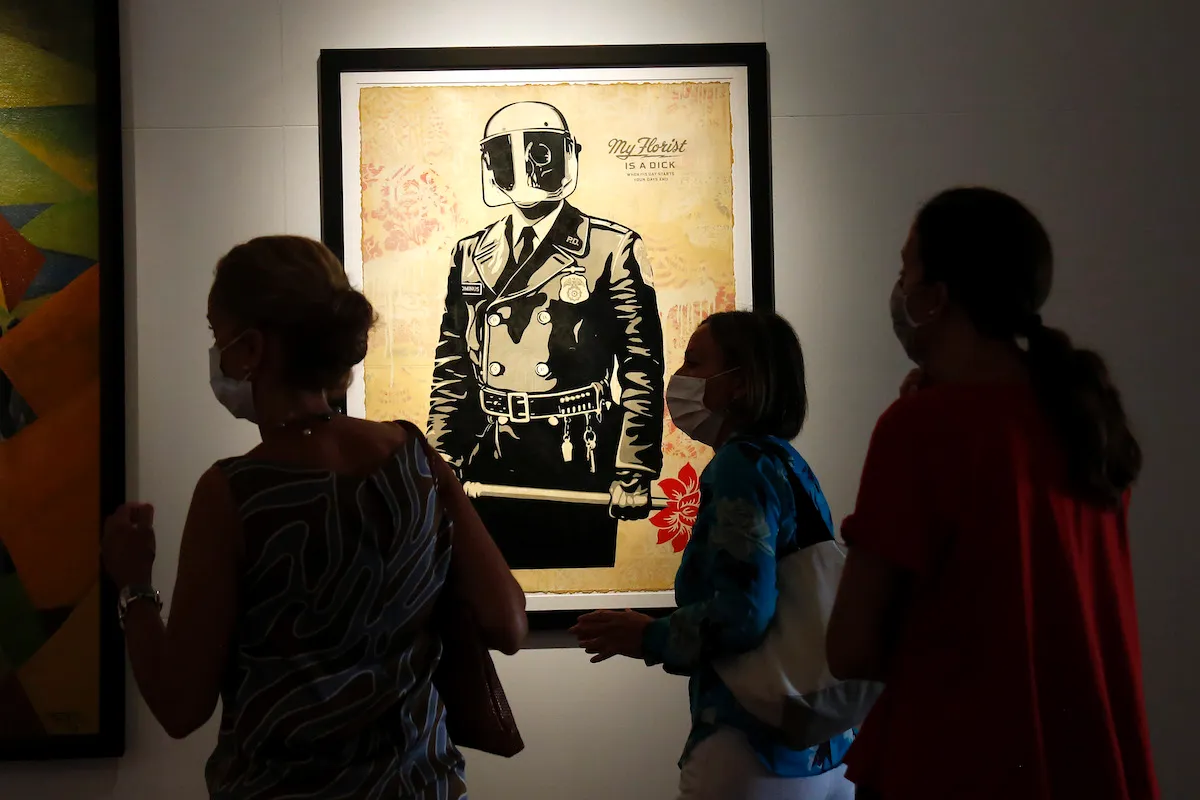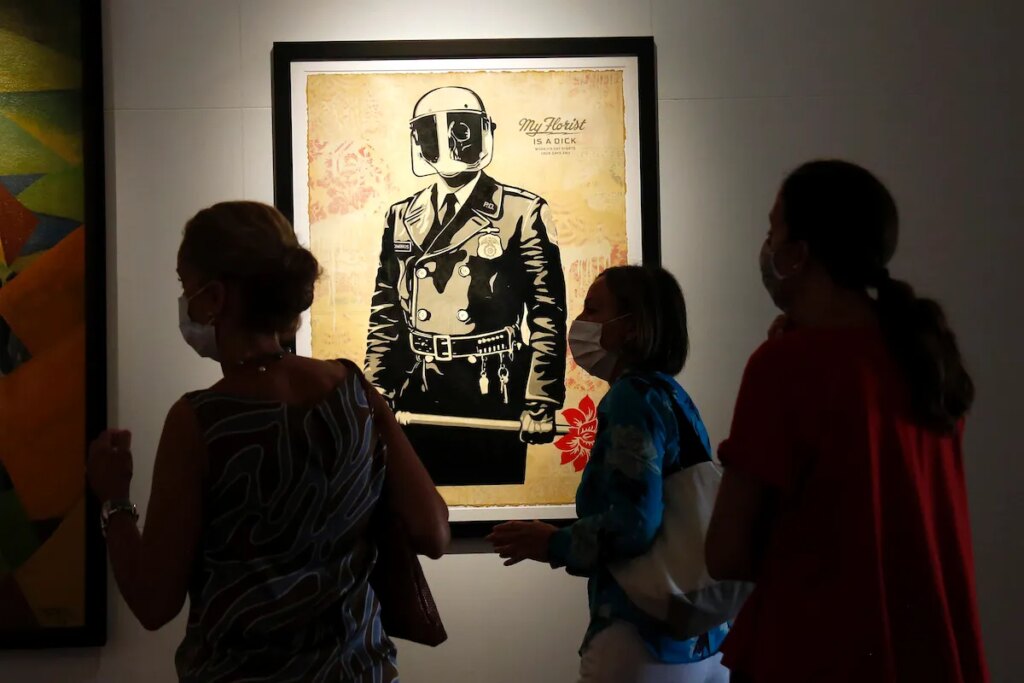
The former chief curator for the Mesa Contemporary Arts Museum in Arizona has sued the City of Mesa, claiming that it violated her right to free speech when it chose to postpone an exhibition that included a Shepard Fairey work that is critical of the police.
Tiffany Fairall’s suit, filed on October 31 in the the US District Court for the District of Arizona and first reported by Southwest Contemporary on Tuesday, centers around a group exhibition that featured Fairey’s 2015 print My Florist Is a Dick. The piece shows a cop donning riot gear and holding a baton that has a flower sprouting from it.
Fairey has said he created the work following the shooting of Michael Brown by police officer Darren Wilson in 2014. The print is also partly a response to Fairey’s own imprisonment, during which he has said he was hit in the face by a police officer and denied access to insulin needed to treat his diabetes.
The Fairey work was included in a group exhibition, but according to local Arizona outlets, the museum postponed the work in August 2023, ahead of its planned opening in October, because of that print specifically. The City of Mesa claimed that the true reason for the postponement was because “artists’ contracts had not yet been finalized.”
According to Fairall’s lawsuit, Chris Brady, the city manager of Mesa, objected to the use of the word “dick” in the Fairey piece’s title, which he believed might offend local law enforcement.
While the Mesa Contemporary Arts Museum is not a venue whose programming typically attracts national attention, major organizations, including the American Civil Liberties Union and PEN America, publicly denounced the postponement.
Fairall’s lawsuit labels the postponement a form of censorship. It notes that she “feared that if she allowed this censorship to occur, it would set a precedent disproportionally affecting minority and Black American artists,” since their work sometimes also refers to police brutality.
Ultimately, the Fairey work and the rest of the show did go on view in Mesa. But Fairall’s lawsuit alleges that after the exhibition’s run, in May 2024, she was terminated by the city because she raised censorship concerns.
The City of Mesa declined to comment to ARTnews, saying it could not discuss pending litigation.


